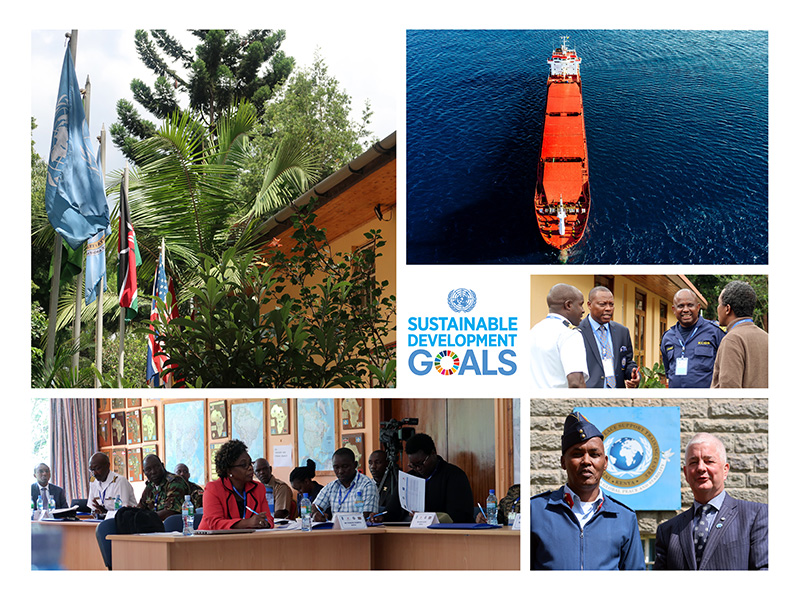Placing maritime activity at the heart of national development plans in Africa will help deliver the Sustainable Development Goals, which is a key strategic direction for IMO. A recent IMO training activity in Nairobi, Kenya is helping to do just that.
With 38 of 54 African countries being coastal States – and more than 90% of Africa’s imports and exports being transported by sea, Africa’s future depends on healthy oceans and a sustainable Blue Economy. This inclusive, clean and green approach to harnessing maritime resources is central to a new training course being developed in Kenya with support from IMO.
A pilot session on the ‘Strategic Maritime Security and Blue Economy Course’ for senior Kenyan government officials is taking place (28 October – 1 November) at the International Peace Support Training Centre. The course includes an IMO-run module dealing with Blue Economy policy development, through which participants are learning to explain the current state, dynamics and role of policy decision makers in developing and implementing Blue Economy policies.
During the week, participants were challenged to answer a number of key questions. Is the biggest challenge the failure to appreciate the value of the maritime sector? Is it fair to say that many African countries do not have a strong maritime culture? If so, how do we change that?
The module places a focus on the need for all government agencies, military and civilian, to support a national and regional effort rather than operate departmentally. Participants are also asked to consider the current and potential role of women in the maritime community, with IMO’s Women in Maritime Programme slogan: “training, visibility, recognition” underpinning discussions.
It is envisaged that once completed, the course will be
rolled out to wider audiences across the continent.
